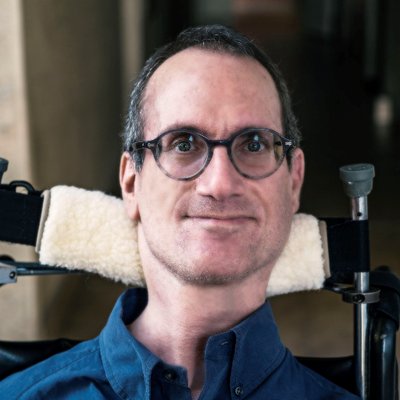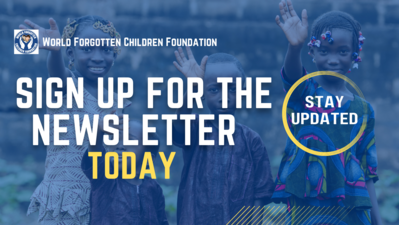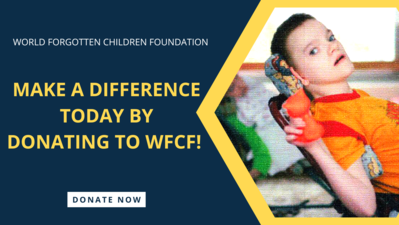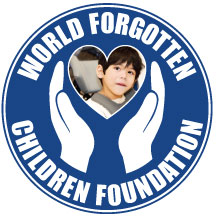
Ben Mattlin is a writer, editor, and essayist in Los Angeles that writes about the Disability Rights movement and the many obstacles we need to overcome as a society in order to ensure equality between able-bodies individuals and people with disabilities. Mattlin is the author of Miracle Boy Grows Up: How the Disability Rights Revolution Saved My Sanity, In Sickness and In Health: Love, Disability, and a Quest to Understand the Perils and Pleasures of Interabled Romance, and his latest book, Disability Pride: Dispatched from a Post-ADA World.
Mattlin is also a senior writer at Financial Advisor magazine, an occasional commentator for The New York Times, The Washington Post, NPR’S “Morning Edition,” CNN.com, Los Angeles Times, VOX Media, Chicago Tribune, US Today, Newsweek, and Self magazine.
Mattlin was born in New York City in 1962 and graduated cum laude from Harvard university IN 1984. He now lives in L.A. with his wife, two daughters, a cat, and a turtle. Times have certainly changed for the disability rights movement from the 1960s, but Mattlin finds that there is much to fight for in the battle for equal rights and opportunity.

As our mission of providing care and support for children with disabilities closely aligns with Mattlin’s goals, we wanted to learn more about his experiences in the disability rights movement and his most recent book.
1) What inspires you to write about disability rights? Why did you decide that this issue was of special importance?
Simply because the topic affects me personally, as a lifelong disabled person. I learned early on that the disability rights activists were on to something – something real and true and disturbing. What I’ve learned more recently, from research for my new book, DISABILITY PRIDE, is that disability rights isn’t enough. There are a lot of issues and a lot of people that have been overlooked in the disability rights framework.
2) What do you think are some of the most memorable, historical moments in the fight for disability rights?
I would hate to leave anyone or any event out. There are several chapters about this in my book. From the protests of veterans and polio survivors in the early 20th century to the eventual passage of modest equal-access laws in the 1970s, with the help of a diverse array of progressive organizations such as the Black Panther Party, to the passage of the Americans with Disabilities Act in 1990 and the Olmstead-Curtis decision some 15 years later, and on and on, the history of disability activism is long, complex, and exciting!
3) What are some things that you learned about when writing your new book that you think people ought to know?
I came to understand that not all disabled people are like me. Disability cuts across all geographies, colors, races, orientations, genders, economic levels, and so forth. It also encompasses a wide range of impairments and chronic health conditions, including people with long Covid, who number in the millions.
4) Your latest book has just been released. What themes does this book focus on? How is it different from your previous work?
My new book is primarily a journalistic look at the vast disability community as it is today, more than three decades after earning our civil rights protections. My goal was to amplify the views of others. In my previous two books, I was presenting a lot about my own experiences and perspectives. They were essentially memoirs. This one is pretty much straight reportage.

5) How can someone without a disability help people who have disabilities? What does great allyship look like?
Emily Ladau wrote a book on that very subject! The main thing, I think, is to have the humility to listen to disabled people. Don’t assume things about them or try to speak for them. And never, never objectify us! (You don’t know how many times I’ve been called “the wheelchair” or “the patient,” even when I’m not in a doctor’s office.)
6) Are there any intersectionality issues that ought to be considered when talking about disability rights?
Absolutely! As I said earlier, the disability community is not monolithic. In fact, it may be the most diverse minority on the planet. I’m a cisgender white guy, and it wouldn’t be appropriate for me to speak for others. But I do recognize that disabled people with intersectional identities clearly face a host of issues that should receive more attention from the general population.
7) What do you think is next for you after the release of this book?
A long rest! No, actually, I have other work to do.
8) Any other thoughts?
Buy my book! The disability community is fascinating and vibrant, and the more you know about it the more uplifted you become and the more comfortable you’ll feel in your own skin.
Mattlin has been writing about the fight for equal opportunity in the disability rights movement, but you too can help support people by disabilities by donating to WFCF today. A small donation can make a huge difference. Start today!
|



